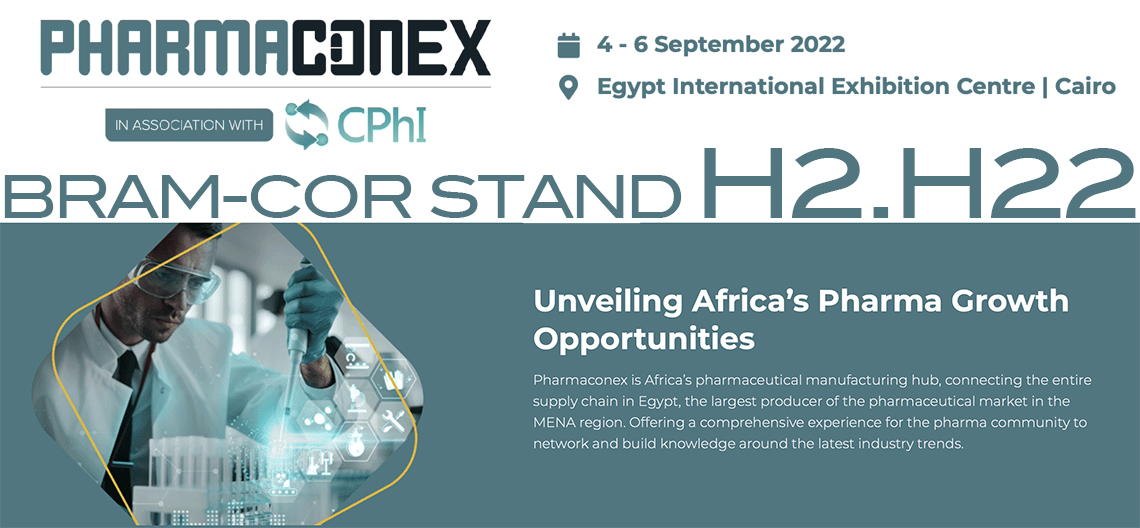Nous sommes heureux de retourner au Caire pour cet événement important avec la force de nos propositions et de nos technologies de processus pharmaceutique.

(source: https://www.pharmaconex-exhibition.com/en/visit/why-visit-.html)
Join over 5,000 industry professionals for Pharmaconex 2022
• Source new suppliers and manufacturers from all around the world under one roof.
• Identify new business opportunities.
• Get updated on the latest trends and developments at Pharmaconex conferences.
The North African pharmaceutical market was valued at USD 12.98 Bn in 2018 and is expected to grow at a CAGR of 8% to reach to about USD 22.23 Bn by 2025. The growth of the pharmaceutical market in this region is driven by a number of demographic factors like rapidly changing population dynamics, where populations are expanding, but also ageing. Additionally, lifestyle
changes have led to higher incidences of non-contagious chronic diseases and conditions – most notably cardiovascular diseases, obesity, cancer and type-2 diabetes.
Countries in North Africa that have managed to establish pharmaceutical manufacturing industries in recent years include Morocco, Tunisia and Algeria. In 2017, the industry in Morocco was able to cater to about 65% of the demand in the country (compared to 49% in Tunisia and 30% in Algeria). Pharmaceuticals produced in Morocco were also exported to Europe, other parts of Africa, and the Middle East. These capabilities could lead to partnerships being made between foreign and North African firms that have strong manufacturing and distribution networks.
Egypt’s pharmaceutical market is among the most attractive in the MENA region. With the reforming economic and regulatory environment, there has been an increase in interest and investment from multinational pharmaceutical companies to enter this market. Egypt’s healthcare market is set for a period of transformation as Egypt is attempting to achieve universal healthcare access through the implementation of a comprehensive health insurance system.
Egypt has a strong manufacturing industry; it is the largest producer of pharmaceuticals in the MENA region with around 90% of the drugs consumed in the country being manufactured locally with a much greater market share for generics.
The pharmaceutical market in Egypt was valued at USD 3.1 Bn in 2018 and is estimated to grow at a CAGR of around 8% to reach to about USD 5.2 Bn by 2025. The growth in the Egyptian market will be driven by the country's growing demand for prescription medicines, a rapid increase in the country's population and growing health awareness. In addition, the market is also expected to receive a boost from the initiatives taken up by the MoH to improve the regulatory environment as well as the implementation of the comprehensive health insurance system. However, disputes over medicine pricing, impact of high inflation and the lasting negative currency effects will continue to act as bottlenecks to the growth of this market.